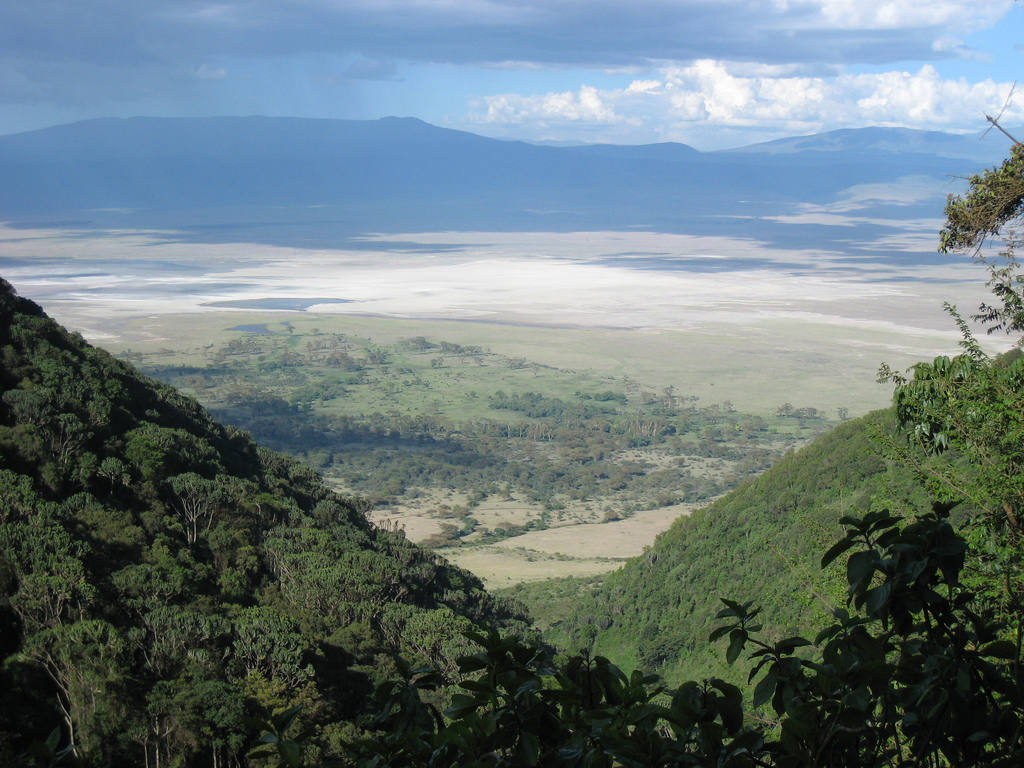If you’re a nature and animal lover, you need to be really careful in your choices about how you spend your travel dollars. For example, you’re unlikely to us dropping money at places where animals are exploited like SeaWorld or riding elephants in captivity. There are some much better things you can do with your travel dollars, and have better experiences too.
1. Safaris.
For many nature and wildlife lovers like myself an African safari is the ultimate vacation of a lifetime. With this type of trip you can really get a sense of the beginnings of the earth and a sense of being in touch with the power of nature.
I had some amazing experiences during the 2 safaris I did in East Africa some years ago. For example: I visited natural wonder that is Tanzania’s Ngorongoro Crater with it’s Noah’s Ark of wildlife and witnessed the wildebeest migration in the Serengeti. I trekked to see the mountain gorillas in Zaire, and in the Masai Mara I saw a large herd of elephants, a lioness teaching her cubs how to hunt, and a cheetah with it’s kill.
My advice for taking safaris is to do several short safaris rather than one long one. This way you can avoid a situation where certain people in the group don’t get on which creates tension for everyone else. This happened to me on one of my safaris that was 5 weeks long! Longer budget camping safaris like that one, while wonderful, can be testing time as you are making and breaking camp most days, preparing for and cleaning up after 3 meals a day, and travelling together 24/7. There were 21 of us on our safari truck so it was understandable that tensions flared among certain individuals. It would have been better if I’d done 2 shorter safaris with some breathing time in between. Another option is to go on a shorter more luxurious safari where the accommodation is comfortable and your meals are provided for you.
2. Hiking.
Hiking is obviously a low impact way to interact with nature. Countries like New Zealand have great infrastructure to support hiking and many of those taking the hikes are local experts. Because hiking tourism is such an important part of the travel economy, everyone has a vested interest in the long term health of the trails.
3. Visiting State and National Parks.
Virtually every country has a system of national and/or state parks. There are usually some low cost camping options within the parks, and sometimes cabins. Due to popularity, make sure you book in advance as the best value options will tend to get booked up early, and private accommodation near conservation land will tend to be pricey for the level of service provided.
In some places you can get a pass that will allow you to visit multiple parks without paying a separate fee each time. For example, the US has an annual pass for $80 called the “America the Beautiful” pass. US resident seniors, people with disabilities, and US military families can even get the pass for free.
If you’re planning on doing a grand tour/road trip and exploring lots of different parks then it’s a great option.
4. The underwater world.
If you’re only thinking of nature and wildlife above ground then you’re missing out on the whole other mind-blowing world going on beneath the ocean. There a lots of places where you can learn to dive fairly inexpensively. If like me you find the idea of diving a bit daunting, then snorkeling is a safe and fun alternative. You won’t see quite as much but you’ll still see some wondrous and colourful sights, and it’s cheaper than diving, which can get pricey if you become too much of an addict!
Photo Credit: Chadica under Creative Commons license. Ngorongoro Crater.

